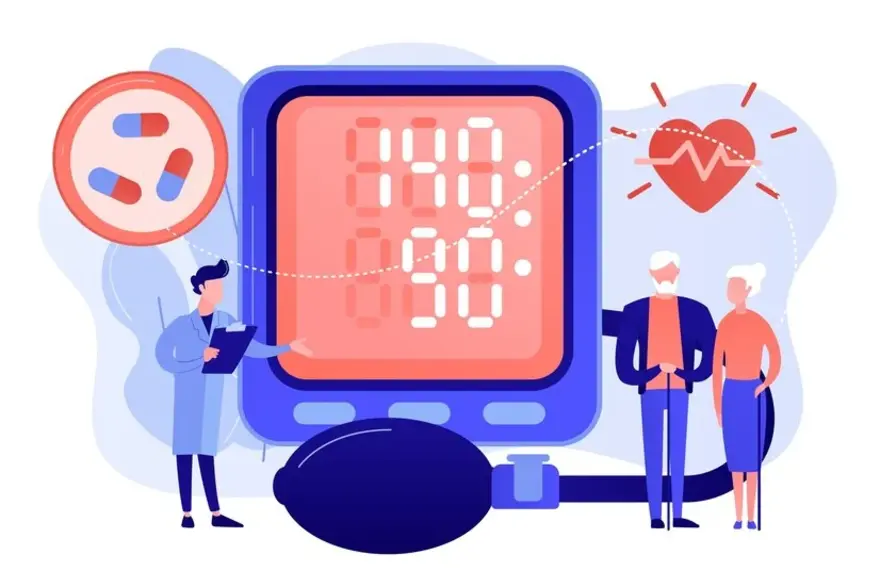Preventive Healthcare
Hypokalemia: Understanding Low Potassium Levels and How to Manage Them

Table of Contents
Hypokalemia, or low blood potassium, is a common electrolyte disorder that can significantly impact your health if left untreated. Potassium plays a crucial role in maintaining normal muscle and nerve function, and an imbalance can lead to concerning symptoms. In this article, we'll explore the causes, signs, and treatment options for hypokalemia, empowering you with the knowledge to recognise low potassium levels and take proactive steps towards managing your well-being.
What is hypokalemia?
Hypokalemia is a condition characterised by lower than normal potassium levels in the blood. Potassium is an essential mineral that helps regulate muscle contractions, nerve signalling, and fluid balance in the body. The normal range for blood potassium is 3.5-5.0 millimoles per litre (mmol/L). When levels fall below 3.5 mmol/L, it is considered hypokalemia.
For example, if your blood test shows a potassium level of 3.2 mmol/L, your doctor may diagnose you with mild hypokalemia.
How does hypokalemia affect our body?
Low potassium levels can significantly impact various bodily functions. Potassium is crucial for proper muscle contraction, including the heart muscle. Hypokalemia can lead to muscle weakness, fatigue, and abnormal heart rhythms, which can be life-threatening in severe cases.
What causes hypokalemia?
Several factors can contribute to the development of hypokalemia. Some common hypokalemia causes include:
- Medications: Certain diuretics, laxatives, and antibiotics can increase potassium loss through urine or the digestive tract.
- Gastrointestinal issues: Prolonged vomiting, diarrhoea, or laxative abuse can lead to excessive potassium loss.
- Hormonal disorders: Conditions like hyperaldosteronism, where the adrenal glands produce too much aldosterone, can cause potassium wasting.
- Kidney disorders: Chronic kidney disease or renal tubular acidosis can impair the kidneys' ability to retain potassium.
- Poor dietary intake: Not consuming enough potassium-rich foods can contribute to low potassium levels.
For instance, if you've been taking diuretics for high blood pressure and experiencing frequent bouts of diarrhoea, you may be at a higher risk of developing hypokalemia.
What are the symptoms of hypokalemia?
The symptoms of hypokalemia can vary depending on the severity of the condition. Common signs of potassium deficiency symptoms include:
-
Muscle weakness, cramps, or spasms
-
Fatigue and weakness
-
Constipation
-
Heart palpitations or irregular heartbeat
In severe cases, hypokalemia can lead to paralysis, respiratory failure, and even cardiac arrest.
How is hypokalemia diagnosed?
If you suspect you have hypokalemia, your healthcare provider will likely recommend the following diagnostic tests:
- Blood tests: A simple blood test can measure your potassium levels and other electrolytes like magnesium and calcium.
- Urine tests: A 24-hour urine collection or spot urine test can help determine if your body is excreting too much potassium.
- Electrocardiogram (ECG): An ECG can detect abnormal heart rhythms that may be caused by low potassium levels.
Your doctor may also order additional tests to identify any underlying conditions contributing to your hypokalemia, such as blood sugar tests for diabetes or hormone level tests for hyperaldosteronism.
How is hypokalemia treated?
The treatment for hypokalemia depends on the severity of your condition and the underlying cause. Treatment options may include:
- Oral potassium supplements: For mild cases, your doctor may prescribe oral potassium tablets or solutions.
- Intravenous (IV) potassium: Severe hypokalemia may require IV potassium administration in a hospital setting.
- Dietary changes: Consuming potassium-rich foods like bananas, spinach, and avocados can help maintain healthy potassium levels.
- Medication adjustments: If certain medications are causing your hypokalemia, your doctor may modify your prescription or dosage.
How to reduce the risk of hypokalemia?
To lower your risk of developing hypokalemia, consider the following tips:
-
Eat a balanced diet rich in potassium-containing fruits and vegetables.
-
Stay hydrated, especially if you have diarrhoea or are vomiting.
-
Be mindful of laxative and diuretic use, and follow your doctor's recommendations.
-
Manage underlying health conditions that may affect potassium levels, such as kidney disease or eating disorders.
-
Regularly monitor your potassium levels if you are at risk for hypokalemia.
What is the outlook for hypokalemia?
The prognosis for hypokalemia is generally good with proper treatment. Most cases can be managed with oral supplements and dietary changes. However, severe untreated hypokalemia can lead to serious complications like heart arrhythmias, paralysis, and even death. Early recognition and intervention are key to preventing these adverse outcomes.
Conclusion
Hypokalemia is a treatable condition that requires prompt medical attention. By understanding the causes, symptoms, and treatment options for low potassium levels, you can take an active role in managing your health. If you suspect you have hypokalemia, don't hesitate to consult your healthcare provider. They can help determine the underlying cause and develop a personalised treatment plan. At Metropolis Healthcare, we offer comprehensive blood tests and health check-ups to help you stay on top of your well-being. Our team of skilled phlebotomists can conveniently collect samples from the comfort of your home, ensuring a hassle-free experience. Remember, prioritising your health is a journey, and with the right knowledge and support, you can navigate it with confidence.




























